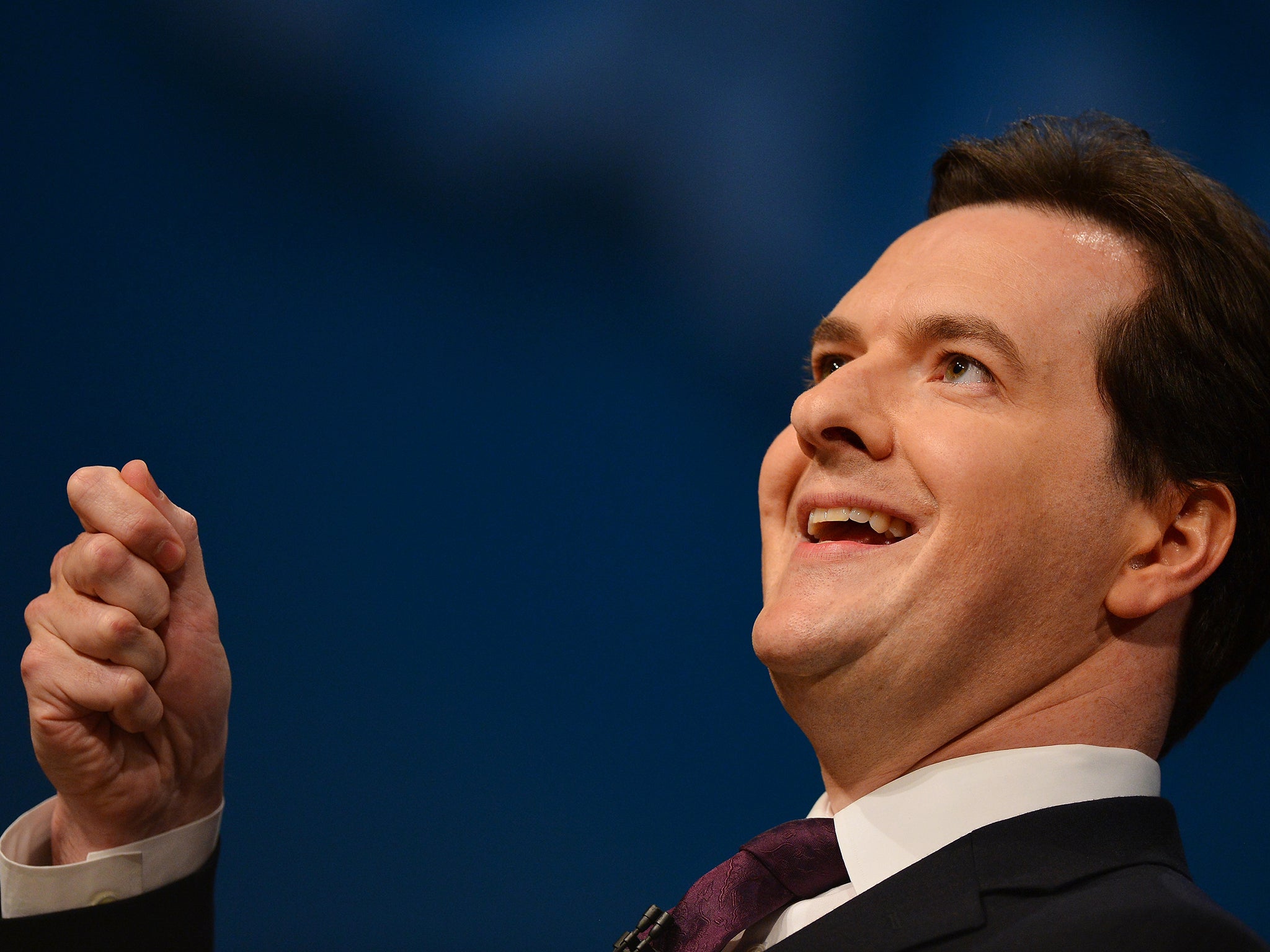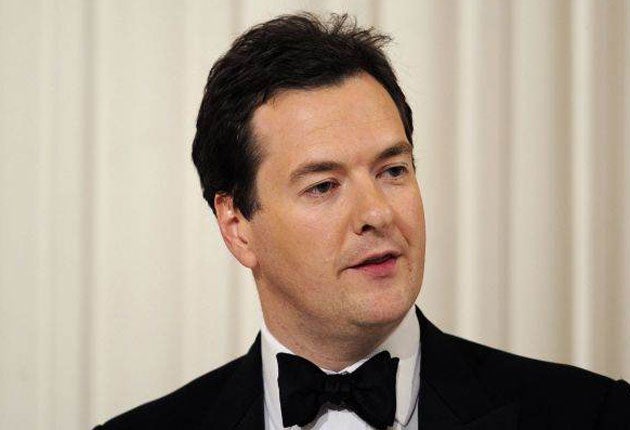Why George Osborne's plan to use Victorian-age economics to ban government borrowing is a political stunt to trap new Labour leader
Chancellor wants to entrench into law his 'new settlement' that binds governments to running a budget surplus in 'normal times'

George Osborne will use a committee that last met 155 years ago to highlight his plan to ban governments from borrowing in “normal times”.
A deficit will only be allowed in exceptional circumstances in the Chancellor’s “new settlement” to be unveiled in his annual Mansion House speech tonight. The Treasury has refused to spell out when "normal times" would not apply.
He will seek to enshrine the new rule into law and thereby challenge the new Labour leader to sign up to the plan or risk deepening the party’s economic woes.

It is seen as the latest stunt from Mr Osborne who is as much a political chancellor as he is an economic one.
And to hammer his fiscal responsibility message home, he has announced that the Committee of the Commissioners for the Reduction of the national Debt, which was established by William Pitt the Younger, will meet for the first time since 1860.
The committee is so old that it includes figures such as the Speaker of the House of Commons, the Lord Chief Justice and the Governor of the Bank of England, all of whom are supposed to be politically independent of government.
While Mr Osborne argues high levels of debt “disadvantage future generations,” in reality he has thrown this spanner in the works at a time when Labour is tearing itself apart over whether it should apologise for spending too much under Tony Blair and Gordon Brown.
It is a typical move from Mr Osborne, who jumped Ed Balls into backing his fiscal rules in the last Parliament.
Last December he announced a new charter for budget responsibility, which aimed to lock the new government into running a budget surplus by 2020.
In last year’s budget Mr Osborne again tried to out-manoeuvre the then shadow chancellor by introducing a £120 billion cap on welfare spending.

And during the election campaign Mr Osborne and David Cameron pledged to enshrine into law a “five-year tax lock” that would stop the new government from raising income tax, national insurance or VAT until 2020 – another measure designed to expose Labour as the party of tax and spending.
When the new Labour leader is announced on September 12, he or she will immediately have to decide whether to back Mr Osborne’s latest – and most audacious – political stunt when it is put to MPs in the autumn.
If they decide to call his bluff, they risk haemorrhaging even more ground on economic credibility to the Tories.
But if they vote in favour, and win the 2020 general election, the new Labour administration will either have their hands tied over public spending or face the prospect of performing a U-turn and repealing the law, which would risk the stability of the financial markets that fear the new government would undermine public finances by going on a spending splurge.
Join our commenting forum
Join thought-provoking conversations, follow other Independent readers and see their replies
Comments